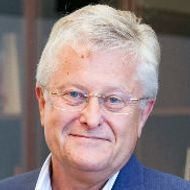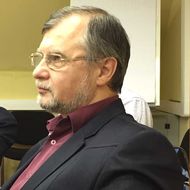- A
- A
- A
- ABC
- ABC
- ABC
- А
- А
- А
- А
- А
- HSE University
- Faculties
- Faculty of Social Sciences
- School of Political Science
- News
- Expert on Authoritarian Regimes to Speak at April Conference
3 Krivokolenny Pereulok, Moscow, 103070.
Phones:
8 (495) 772-95-90 *22833,
8 (495) 772-95-90 *22448
Fax: 8 (495) 772-95-90 *12556
Email: politfac@hse.ru
Washington: Free Russia, 2018.
Petrov N., Hale H. E., Lipman M.
Russian Politics. 2019. Vol. 4. No. 2. P. 168-195.
Arbatli E.
In bk.: Oxford Research Encyclopedia of Politics (Living Edition). Oxford University Press. P. 1-20.
Sorokina A., Maximenkova M., Kasamara V.
Political Science. PS. Высшая школа экономики, 2019. No. 71.

Expert on Authoritarian Regimes to Speak at April Conference
While much of the focus on politics and global affairs over the past several decades has been on democratization, the most striking thing about this period has been the survival and spread of authoritarian regimes, argues Graeme Gill, Emeritus Professor in the Department of Government and International Relations at the University of Sydney. Professor Gill is one of the presenters at the upcoming XX April International Academic Conference on Economic and Social Development, scheduled this year for April 9-12 at the Higher School of Economics.
In his presentation, ‘Stabilizing Authoritarian Regimes: Leadership Norms and Elite Dynamics,’ which is scheduled to take place in the Political Processes section on April 10, Professor Gill will argue that while there are a number of explanations for this reality, one of the most important is the stability of political leadership. Regime change is often brought on by splits in a ruling group, and if that group can hang together, its prospects for survival are greatly increased.
That said, while the common view of authoritarian rule is of a power-maximizing dictator who arbitrarily rules through fear, including over his immediate colleagues, Professor Gill will argue that this picture is mistaken and that leadership in most authoritarian regimes is characterized by norms (also called rules, or regularities) that structure the dynamics of political life among the oligarchs.
‘My paper will discuss these rules as a way of demonstrating the broader point that authoritarian leaderships rarely work in an arbitrary fashion, but are governed by different types of rules,’ he said in an interview with the HSE News Service ahead of the conference.
Drawing on his research interests in Russian and Soviet politics, comparative authoritarian regimes, democratization, and the origins and development of the state, Professor Gill’s presentation will focus on five types of rules that are commonly found to structure elite politics in authoritarian regimes: decision rules, rules of comportment governing behaviour, rules structuring membership of the oligarchy, principles relating to succession, and norms about the relationship between the oligarchy and the broader elite.
‘My approach to this question has been greatly shaped by Russian historians and political scientists who have worked in particular on the Soviet period,’ Professor Gill said. ‘One who has had a major influence at HSE is Oleg Khlevniuk. I have also worked on other projects relating to things like symbolism in politics and state capacity, which have been greatly assisted by staff at HSE, respectively Dr Olga Malinova and Professors Andrei Melville and Mikhail Ilyin. My initial contacts with the HSE have come through these people and the cognate projects upon which we have been working.’
- About
- About
- Key Figures & Facts
- Sustainability at HSE University
- Faculties & Departments
- International Partnerships
- Faculty & Staff
- HSE Buildings
- HSE University for Persons with Disabilities
- Public Enquiries
- Studies
- Admissions
- Programme Catalogue
- Undergraduate
- Graduate
- Exchange Programmes
- Summer Schools
- Semester in Moscow
- Business Internship
- © HSE University 1993–2025 Contacts Copyright Privacy Policy Site Map
- Edit

